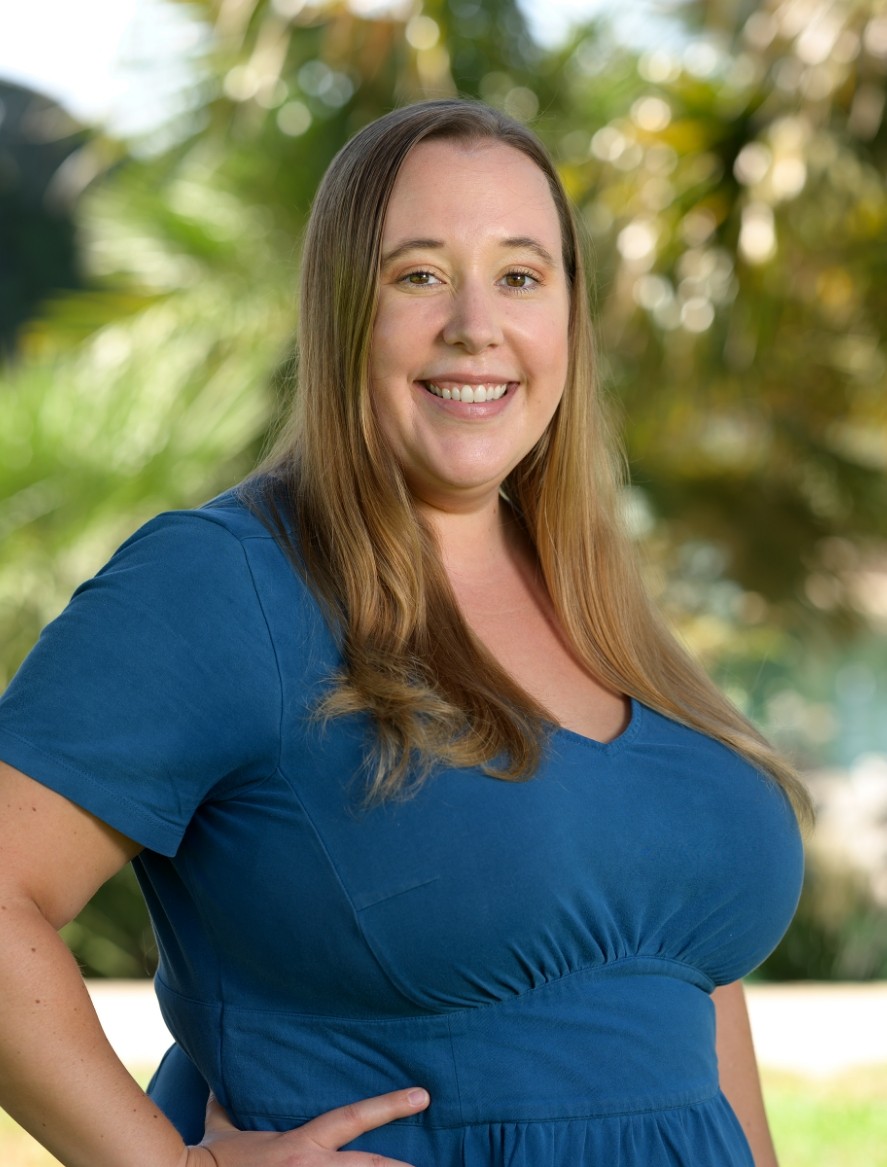While figuring out how to make ends meet as a graduate student, Emily Roberts ’07 created a blog about her finances. This exercise resulted in two meaningful conclusions about life in graduate school: It’s time to retire the notion of the starving student, and university offers should be robustly examined and negotiated.
Roberts took a winding path to her profession as a financial educator—she conducts online and in-person seminars and hosts a podcast through her business, Personal Finance for PhDs. She graduated from Mudd as a physics major in 2007, then in 2014 earned her PhD in biomedical engineering from Duke University.
“The liberal arts education provided by Harvey Mudd gave me such a breadth of skills, both in the sciences and engineering but also with writing, communication and learning across disciplines,” Roberts shares via Zoom from her San Diego home, where she lives with her husband, Kyle Roberts ’07, who also holds a PhD from Duke University, and their two children.
Her life in graduate school was marked by typical stressors, like learning to successfully manage her time and research projects and live on the stipend provided by the university.
“I came through that period with a desire to learn, study and teach in an even different field, which is personal finance,” she says. “I think the experience at Mudd and switching fields in undergrad and graduate school gave me confidence in my own abilities to apply my skills and knowledge in different areas.”
With about a dozen years of higher education behind her, including a post-baccalaureate fellowship at the National Institutes of Health, as well as more than 150 podcasts on her website, Roberts has fine-tuned a guiding principle championed by award-winning science communicator Katie Wedemeyer-Strombel: “Grad school should be challenging but it shouldn’t crush you.”
So, how can a grad student learn to thrive financially? Roberts shares five pieces of advice for prospective grad students.
1. Don’t resign yourself to being a starving scholar.
 Students tend to focus on spending fundamentals—groceries, clothing, entertainment—while ignoring larger financial goals, like repaying student loans, investing or establishing an emergency fund. “The starving scholar does not have to be true for you,” Roberts emphasizes. The mindset shift must happen first. “If you never even conceive that you could have a goal, then that’s what must change first,” she advises.
Students tend to focus on spending fundamentals—groceries, clothing, entertainment—while ignoring larger financial goals, like repaying student loans, investing or establishing an emergency fund. “The starving scholar does not have to be true for you,” Roberts emphasizes. The mindset shift must happen first. “If you never even conceive that you could have a goal, then that’s what must change first,” she advises.
2. Read the benefits package twice.
 The most important time in which to consider your financial situation is during your grad school application year, Roberts says. “You should carefully consider what they’re going to be paying you in the context of the local cost of living.” Roberts admits she didn’t factor in cost of living as a prospective student but got lucky when she chose a school that paid a relatively good stipend for the local cost of living. “I was not intentional about that,” she admits. “It’s common that stipends will be less than the local living wage for one adult. But I would say that is a red flag.” When looking across offer letters, compare those that are above the cost of living and those that are below. The difference could mean whether or not you have to get a part-time job or take out student loans to attend a certain university.
The most important time in which to consider your financial situation is during your grad school application year, Roberts says. “You should carefully consider what they’re going to be paying you in the context of the local cost of living.” Roberts admits she didn’t factor in cost of living as a prospective student but got lucky when she chose a school that paid a relatively good stipend for the local cost of living. “I was not intentional about that,” she admits. “It’s common that stipends will be less than the local living wage for one adult. But I would say that is a red flag.” When looking across offer letters, compare those that are above the cost of living and those that are below. The difference could mean whether or not you have to get a part-time job or take out student loans to attend a certain university.
3. Do the math.
 Roberts suggests looking at local papers or online databases to find out what rental costs are in the city you are considering. She recommends a database from MIT, which has calculated the living wage for every county and metro area in the U.S. “It’s obviously a conglomerate number, so it’s just a starting point, but I like to point prospective graduate students to this exercise,” she says. Take a closer look at the offer letter and, using a formula, estimate your level of financial capability in each city. “Take the stipend in your offer letter then subtract out the fees—maybe there’s an activity fee or a portion of your health insurance premium or even tuition sometimes. Take that number and divide it by the local living wage for one adult. You then have a number that can be compared across the various offers you get.”
Roberts suggests looking at local papers or online databases to find out what rental costs are in the city you are considering. She recommends a database from MIT, which has calculated the living wage for every county and metro area in the U.S. “It’s obviously a conglomerate number, so it’s just a starting point, but I like to point prospective graduate students to this exercise,” she says. Take a closer look at the offer letter and, using a formula, estimate your level of financial capability in each city. “Take the stipend in your offer letter then subtract out the fees—maybe there’s an activity fee or a portion of your health insurance premium or even tuition sometimes. Take that number and divide it by the local living wage for one adult. You then have a number that can be compared across the various offers you get.”
4. Don’t be afraid to negotiate.
 “This is not something that is very widely discussed within academia,” she notes. “It’s obviously standard practice in the private sector when you receive a job offer to negotiate, but it’s not something that’s done much at the graduate student level. There is no guarantee of success, but it’s important to note how the person you’re negotiating with takes it. They should be respectful.” Further, Roberts strongly believes that universities should be candid when explaining how funding operates. “Whether they say ‘yes’ or ‘no,’ they should give you the reason why,” she says. Students who have their own outside fellowship are in a strong position for negotiation, she argues, because they are bringing money to whatever program they choose.
“This is not something that is very widely discussed within academia,” she notes. “It’s obviously standard practice in the private sector when you receive a job offer to negotiate, but it’s not something that’s done much at the graduate student level. There is no guarantee of success, but it’s important to note how the person you’re negotiating with takes it. They should be respectful.” Further, Roberts strongly believes that universities should be candid when explaining how funding operates. “Whether they say ‘yes’ or ‘no,’ they should give you the reason why,” she says. Students who have their own outside fellowship are in a strong position for negotiation, she argues, because they are bringing money to whatever program they choose.
5. Know your worth.
 Graduate students play a vital role in the labor—in the product—of the university, according to Roberts. “Whether that’s teaching or research, they deserve to be valued financially as well as in other ways for their contribution. It’s also the humane thing to do; to pay people reasonably.” Adopting the label of “student” as a core aspect of your identity will only make matters worse, she says. “I think it’s a little bit infantilizing. You’re a full-fledged adult, and you’re doing important research for the university. Grad students need to hear a little bit of empowerment. That’s a good message.”
Graduate students play a vital role in the labor—in the product—of the university, according to Roberts. “Whether that’s teaching or research, they deserve to be valued financially as well as in other ways for their contribution. It’s also the humane thing to do; to pay people reasonably.” Adopting the label of “student” as a core aspect of your identity will only make matters worse, she says. “I think it’s a little bit infantilizing. You’re a full-fledged adult, and you’re doing important research for the university. Grad students need to hear a little bit of empowerment. That’s a good message.”
